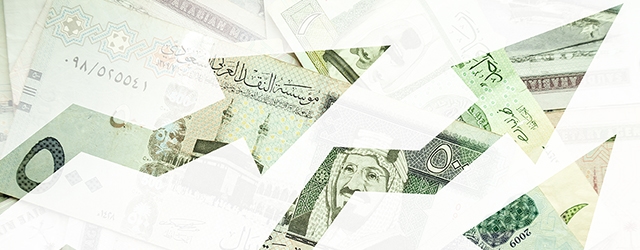Rising fortunes in the Middle East are driving the private-banking market toward socially responsible investing, Islamic products and more digital tools.

Never mind the fall in oil prices; fortunes are growing faster in the Middle East than in any other part of the world. According to Boston Consulting Group, private wealth in the Middle East and Africa (MENA) is expected to reach $11.8 trillion by 2020, with the United Arab Emirates, Saudi Arabia and Kuwait accounting for over 22% of the total.
Wealth in the Arab world generally—and Gulf countries in particular—also has outstanding liquidity, with 82% held in investable assets compared with a world average of 60%. Local families and wealthy expatriates traditionally held these assets, but today a new affluent generation is emerging, holding between $250,000 and $1 million in assets. By 2022, these tech-savvy youth will represent close to 1.5 million individuals, up 14% from 2017 figures and twice the global growth rate.
This unfamiliar clientele presents both an opportunity and a challenge for wealth managers. Private bankers in the Middle East face a market that is increasingly keen on socially responsible investing (SRI) and Islamic finance. Banks are investing in digital technologies to be able to offer more-sophisticated services and products to a wider audience of wealthy individuals.
Following a trend that took off globally after the 2008 crisis, Middle Eastern clients are increasingly keen to invest in niche and “responsible” asset lines. “We are seeing clients in the UAE and the wider GCC increasing their focus on socially responsible investing as well as alternative-investment opportunities,” says Saod Obaidalla, executive vice president and head of Private Banking at Emirates NBD. “As we move toward a period of economic contraction globally, clients are looking to benefit from increasing short-term volatility while preparing their portfolios for the next decade, with a robust and disciplined approach to asset allocation.”
With 10% to 12% annual growth, one very promising segment of nonconventional assets is Islamic finance, in which Arab banks have credibility. Middle Eastern wealth managers boast long experience adhering to Shariah law, giving them a competitive advantage. Several local banks already offer structured Shariah-compliant products or investment portfolios that exclude businesses profiting from alcohol, tobacco, pork, or gambling, for example. Other diversification trends include wealth management services tailored to female customers, and green finance.
Meanwhile, digitization is powering new technologies such as mobile applications, artificial intelligence and robo-advisors, and also an investment channel. “An omni-channel banking experience seamlessly integrating digital is now a basic expectation from the majority of wealth management clients,” Obaidalla says.
Dubai’s largest bank has recently expanded its digital offering with online trading capabilities. Earlier this year, Emirates NBD also introduced The LaunchPad, a funding platform designed to enable clients to invest in local and regional startups.
Although most banks still favor one-to-one relationships with their most wealthy clients, some are developing digital platforms tailored to millennial wealth. In 2018, National Bank of Kuwait’s private-banking arm partnered with a UAE-based fintech to launch NBK Capital SmartWealth, the country’s first digital investment service.
Such platforms may launch under a private bank’s umbrella or as independent players. They rely on algorithms as well as data analytics to assess risk profiles, which enables them to suggest personalized investment strategies with minimal human intervention, thus much more cheaply. “The exponential evolution of technology is creating more and more financial access to everyone regardless of net worth, age, or background, meaning that mainstream investors can gain access to products not traditionally available to
retail investors,” says Mark Chahwan, CEO of Sarwa, a UAE-based digital investment platform.
Betting on Africa
As they look to diversify from the oil economy, Arab banks are showing growing appetite for African market investments through venture capital and development funds. Geographic proximity and religious and diplomatic ties give Gulf lenders an advantage when investing in large infrastructure projects.
In 2018, Saudi Arabia pledged $10 billion to South Africa’s energy sector; Dubai’s DP World is involved in a number of projects, including a $50 million initial investment in Mali; while Qatar signed a $4 billion deal to develop port facilities in Sudan.
Although MENA private banking is doing well, the glory days are yet to come. In a region where a majority of businesses are still family-owned, an estimated $1 trillion is expected to pass down to the next generation in the coming ten years—meaning even more wealthy clients in need of expert advice.



